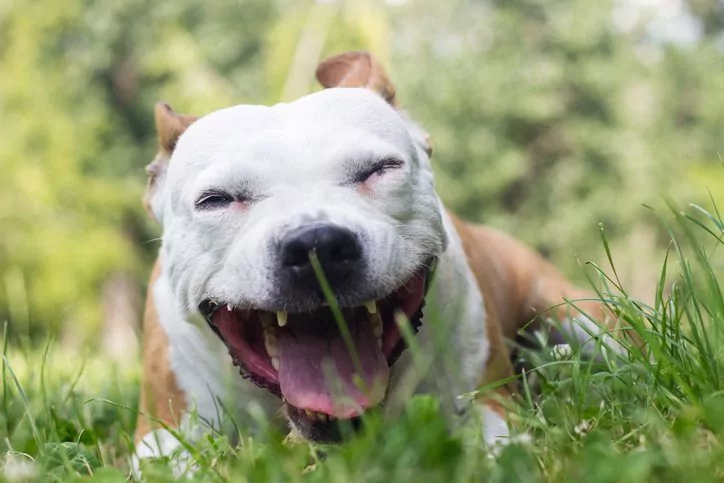Have you ever heard of kennel cough? Kennel cough is a common condition in dogs, and especially in those that have recently been adopted from a shelter or spent time in a boarding facility. But what is kennel cough, and what can you do to help your pet recover from it?

In our animal hospital‘s article below, you’ll find a breakdown of information to help you learn more about this common condition. With the help of this guide, you can learn how to recognize the symptoms of kennel cough and understand which treatments your vet may recommend. Read on to find out more.
Symptoms of Kennel Cough in Dogs
Goose Honk Cough
The most common symptom of kennel cough in dogs is a cough that sounds somewhat like a goose honk. This dry, deep cough may be frequent, or it may only happen at certain times, but it is frequently associated with this condition. A goose honk cough may also occur with heartworm disease, however, so be sure to get this symptom checked out by your vet.
Worsening Cough with Activity
If your dog’s cough is getting worse when she’s active or when she tries to eat, then it may be a symptom of kennel cough. Once again, however, this is also a symptom associated with heartworm disease, and it’s important for your vet to rule out heartworms before diagnosing kennel cough.
Runny Nose
A runny nose is a secondary symptom commonly seen with kennel cough. Since kennel cough affects the upper respiratory system in dogs, it can cause nose problems like this. If your dog has a runny nose that goes along with her coughing symptoms, kennel cough is a likely cause.
Watery Eyes
Watery eyes, like a runny nose, may or may not be seen with kennel cough. When seen along with other symptoms listed here, watery eyes may help you narrow down kennel cough as a potential cause. However, they can also be associated with other respiratory infections in dogs.
Sneezing and Wheezing
Sneezing and wheezing are much less common with kennel cough than with other respiratory infections in dogs. However, they can still sometimes occur along with kennel cough too, so it’s important to consider all the possibilities and have your pet checked out by the vet to see what’s going on.
Loss of Appetite and Energy
Almost every canine illness and health problem can potentially cause a loss of appetite and a lack of energy in dogs. For this reason, you cannot use this symptom alone to figure out whether or not your dog has kennel cough. However, when seen with other symptoms listed above, there is a good chance loss of appetite and energy can indicate kennel cough.
Treatment of Kennel Cough in Dogs
Rest and Fluids
Just like a head cold in humans, kennel cough in dogs can be treated best with rest, fluid, and time. Encourage your dog to take it easy for a couple of weeks and drink plenty of water (or clear, unseasoned broth) to stay hydrated. Wet food may help during this time, too.
Antibiotics
Kennel cough is caused by a virus, so antibiotics are not typically necessary for this condition. However, your vet may still prescribe them to prevent your dog from developing a secondary infection, depending on her risk factors.
Cough Medication
If your dog’s cough is preventing her from being able to rest or eat properly, then your vet may give you a cough medication for her to take. This medication should help her keep the cough under control well enough to recover from her kennel cough.
Medication to Treat Other Symptoms as Needed
Some other symptoms may require additional medication provided by the vet. For example, if your dog seems to be in pain from the condition, your vet may give her a mild pain reliever. Never give your dog human medication for kennel cough symptoms unless expressly directed by your vet to do so.
Steroids
Steroids are not typically necessary for kennel cough, but they may be given in instances when the condition isn’t clearing up very quickly on its own. Your vet will give you more information about what to expect from giving your dog a round of steroids for their illness.
Reach Out to Our Vets if Your Dog Has Kennel Cough
As you can see, kennel cough is not typically a major cause for concern in dogs. However, if your pet is very young, very old, or has other underlying health problems, it could be a riskier condition that needs to be managed more closely with the help of your vet.
If you suspect your dog may have developed kennel cough, give our animal hospital a call at (301) 994-9919.
